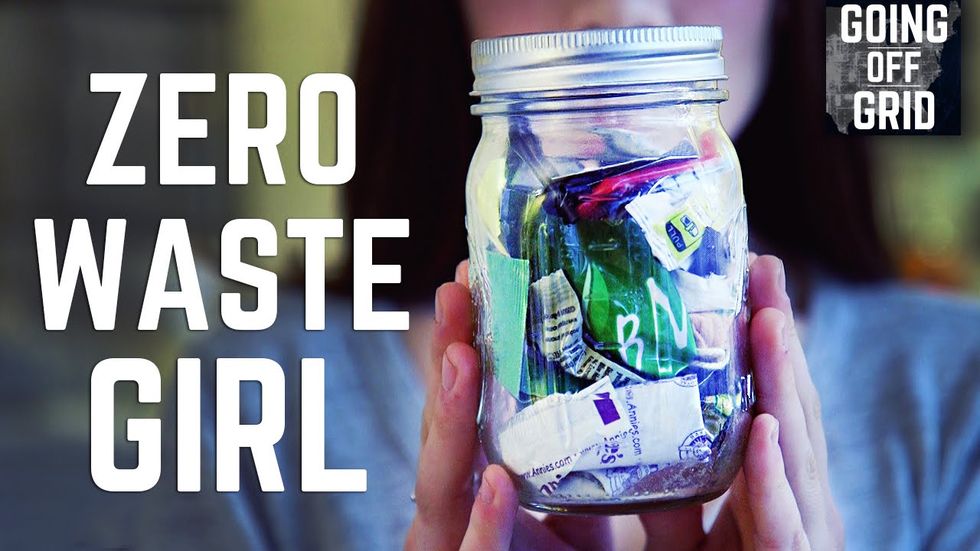Today in my environmental studies course we discussed different types of alternative energy. Some of these technologies are really obscure (have you ever heard of sun shade?) and others more feasible (Scotland just went one day without using fossil fuels thanks to wind energy). A common theme throughout was that the biggest barrier to using this energy was money. There is no shortage of ways to harness energy. We have the technology and manpower, just not the money. In fact, if you examine almost any “green” approach, the largest barrier is money.
In a different course we started discussing the food system and ways to be more sustainable. My professor asked that if we know what types of food are more environmentally friendly, why don’t we buy them? Of course our first response was that we often have to buy whatever is cheapest - choosing to buy organic isn’t an option. True we’ll stop by a farmers market to buy some cheap produce, but often times we’re stuck with whatever we can afford. Granted this was not the point my professor was trying to make about the food system, he acknowledged it as an issue. I hope you’re starting to notice a common theme here, if you are someone who wants to be more environmentally friendly, you have to be able to afford it. While I would love to drive an electric car or a Prius, I bought car based on what was the best deal.
This issue comes up a lot when discussing no-trash living. I’ve discussed my slow descent into this type of lifestyle before, but I find I don’t have many choices to make while in college. A large issue that I have found within the no-trash community is that many people have the privilege to live this lifestyle. They have the money to buy reusables, and the time to make their own toiletries. However, one of the leaders of this lifestyle, Bea Johnson, wrote a post entitled, “Is Zero Waste Realistic for Your Household?” Within this article she essentially ignores her own privilege. She associates “I’m too busy” with “I can’t be bothered” and argues that no-trash living is cheap. While in the long run it is cheap, I can more easily afford a pack of disposable razors than I can a reusable one; it’s a matter of quality versus cost and for many people lower cost trumps quality. “I’m too busy” is a real excuse. I have taken some time to make reusable items, but I do not have enough time in the day to make my own soap or toothpaste (Nor do I really have the space on campus). Now Johnson does go on to acknowledge that adapting this lifestyle is not something you do all at once, suggesting, “take it one room at a time, one day/week/month at a time. Actively working on it, at your own pace, is what really matters.” But Johnson is only one example of this privilege.
If you ever watch a TED talk regarding no-trash living, you’ll notice that in the comments many viewers will comment on how “smug” or “pretentious” the narrator seems. We see this with all sorts of groups, vegans, fitness fanatics - people have a tendency to come off as “this is so great and easy, why doesn’t everyone do this?” These people also have a bit of a point, a no-trash lifestyle, being a vegan, staying fit are all great for you to some extent, so why don’t we all do it? It all leads back to privilege, because not everyone can afford it. If we really want to save our planet, why don’t we make it affordable? People need to use more reusables, so why don’t we make it the better economic choice? We need to lower our emissions, so why don’t we make gas and oil more expensive? Now these questions have very complicated answers that are completely tied up in politics and economics, and there are some pretty good reasons why we don’t just wake up tomorrow with everyone walking everywhere using reusable bags. Tomorrow there will still be many great solutions to climate change that we cannot afford, but just because you can afford a solution does not make you a better person.
Do I truly think that Bea Johnson intended to tell her reader that she is better than them because she lives a no-trash lifestyle? No, absolutely not. If she wanted to do this, I doubt she would be running a blog to help others adapt her lifestyle. Do I think many people feel this way and give up on their green initiatives. From personal experience, yes. So in the fight against climate change, whether this be creating renewable resources or living a more eco-friendly lifestyle, let’s remember to check our privilege. Find ways to help your friends and family be more sustainable if you can - gift them homemade soaps and lotions, gift them a reusable coffee mug. By giving them these tools, they can at least be a little more eco-friendly. If you have found a hack that is cheap and good for the environment, tell others! If you can afford a more eco-friendly lifestyle, live it! Assuming everyone can be environmentally friendly is ignoring some major problems with our society, but if you can be environmentally friendly then do it, because every bit helps our planet.





















